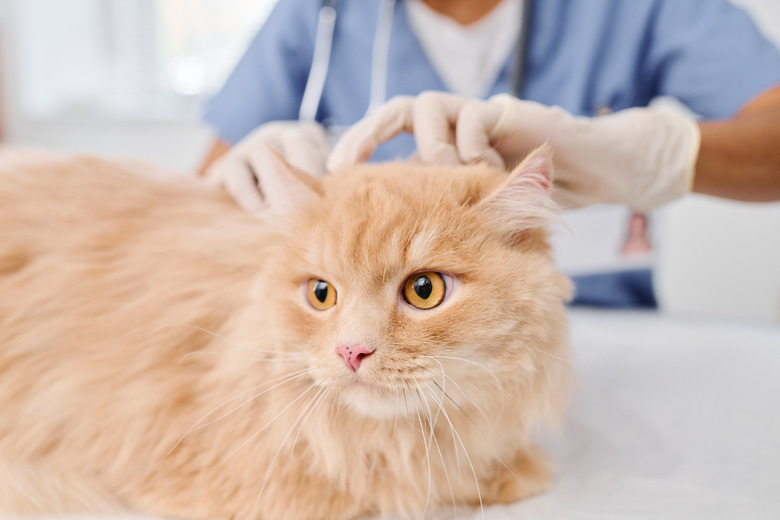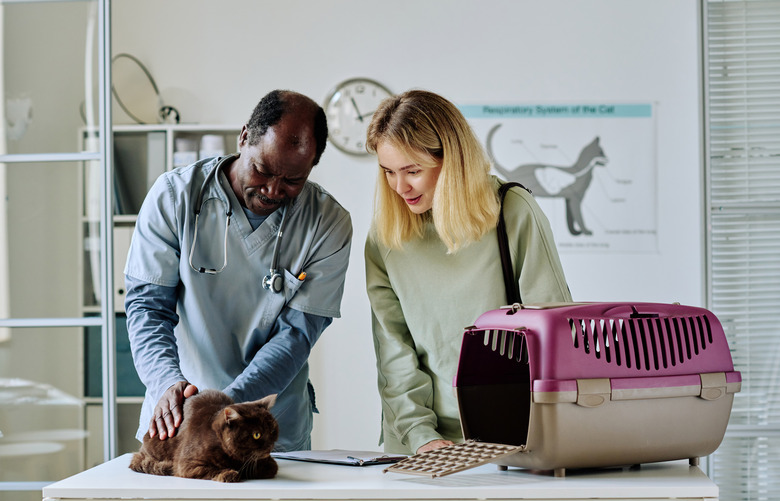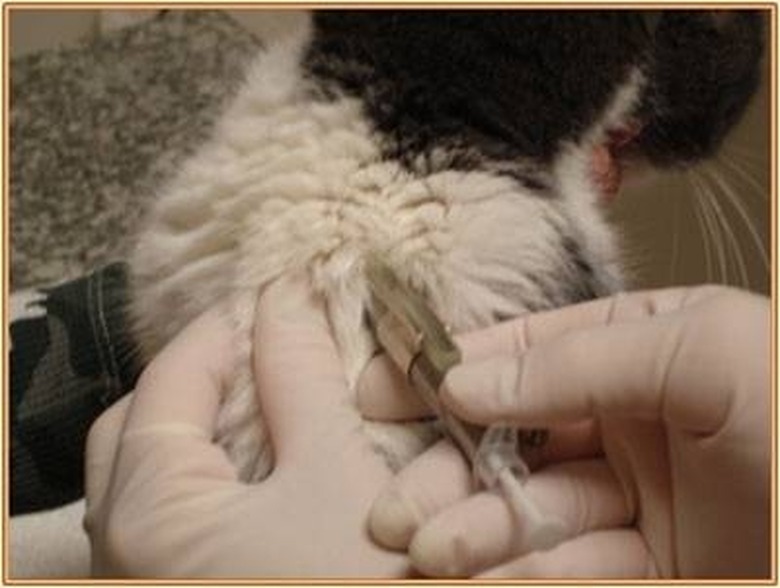How To Give Your Cat A B12 Shot
Kidney disease, or chronic renal disease, is a health problem that can afflict dogs and cats as well as humans. There are many treatments for the disease, which is progressive, but there is no cure. One of the treatments given by veterinarians is injections of vitamin B12, also known as cobalamin or cyanocobalamin.
Vitamin B12 is given to cats and dogs suffering from kidney disease to restore some of the vitamins that are lost when the kidneys are not filtering the blood as they should. This is important for the health of the animal, as healthy blood is key to a healthy life. B12 is also used as a blood builder for animals suffering from anemia.
Why is vitamin B12 for cats important?
Why is vitamin B12 for cats important?
Vitamin B12 is a water-soluble vitamin necessary for cell growth and cell reproduction. It serves as a building block for DNA and RNA production and also assists the nervous system in proper functioning. Another primary function of B12 is the production of energy for the body. Doctors and veterinarians have long prescribed B12 in oral and injection form to treat anemia and kidney ailments; both of these diseases have a direct effect on energy production.
For animals, B12 oral supplements are not ideal, as it would require taking large quantities for the right amount to be absorbed. B12 can help build the blood in patients with anemia, and it can help restore the blood in patients who are suffering from less than perfectly functioning kidneys.
These injections can also help diabetic cats; pets with gastrointestinal disease and other issues, such as inflammatory bowel disease or malabsorption; pancreatitis; or cancers, like lymphoma. When home injections are prescribed, it can be daunting for people who are unsure of how or where to give injections, especially to cats, who are often less than thrilled to be poked with needles.
Where to give your cat a B12 injection
Where to give your cat a B12 injection
By knowing where to inject your cat, you are avoiding causing them any more pain or stress than necessary and certainly avoiding any injury on your part. Most cats are not declawed, and getting a cat mad is no joke. Having all four feet and teeth to deal with can be overwhelming, even for someone used to giving sub-q fluids. So, knowing how to hold and where to inject your cat with the medicine is an advantage.
The best possible place to inject your cat is in the loose skin over the shoulder blades, just behind the scruff of the neck. Once you grasp this loose skin, you are ready to give the injection.
How to give your cat a B12 shot
How to give your cat a B12 shot
B12 supplementation is given subcutaneously (sub-q,) otherwise known as under the skin, not in the bloodstream.
- Take the loose skin over the cat's shoulders firmly in your hand. Once this is done, take your opposite hand that holds the syringe and needle and place the needle into the skin just beneath your bunched fingers.
- Make sure you're not putting the sharp point against the skin without pushing through right away. The sharp point will hurt them longer than necessary. This is the spot where skin is already pulled away from muscle and tissue and can guarantee the proper dispensation of the medicine.
- Push firmly and quickly but gently until you feel the needle puncture all the way through the skin. Because you don't want to push in the entire length of the needle, it isn't necessary to continue pushing hard. Just slide in the needle another couple of millimeters. Empty the syringe by pushing the plunger.
- Withdraw the needle from the skin. The entire injection should only take seconds.
- Put down the shot and gently rub the injected area while releasing the loose skin with your opposite hand. By rubbing the injection site, you are distributing the medicine in the tissues around the site and making sure none leaks out through the injection puncture. Use your voice and hands to praise and caress the cat and reassure them that all is well.
If you have done your job properly, the cat will have felt little to nothing and will not be distressed. There should be no side effects, no pain, no oozing, and no problem with the injection site. If possible, allow the cat to go free and give them a reward for their good behavior.
Side effects of a subcutaneous B12 injection in cats
Side effects of a subcutaneous B12 injection in cats
If you have never given a cat an injection, do not start without assistance. Have a veterinarian show you how to give the injection and if possible, have them observe you giving your first injection.
Although rare, complications from a bad injection can kill your cat. An air bubble in the bloodstream can be deadly, as can a dose of medicine in the blood that is meant to be given in the skin. So, it is far better to be safe than sorry and have the assistance of a professional, like a DVM, on your first few injections.
Even having the help of a person who is experienced with animal shots is better than trying to do it on your own. The good news is that once you have done it a few times, it is very easy to do from that point forward.
The bottom line
The bottom line
Vitamin B-12 injections can help cats with a number of health issues, particularly chronic renal disease. By having a veterinarian walk you through your first time, you'll be able to inject your cat on a regular basis with calmness and confidence.


